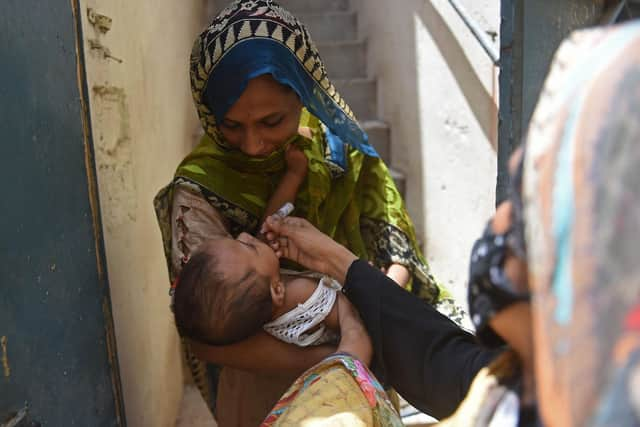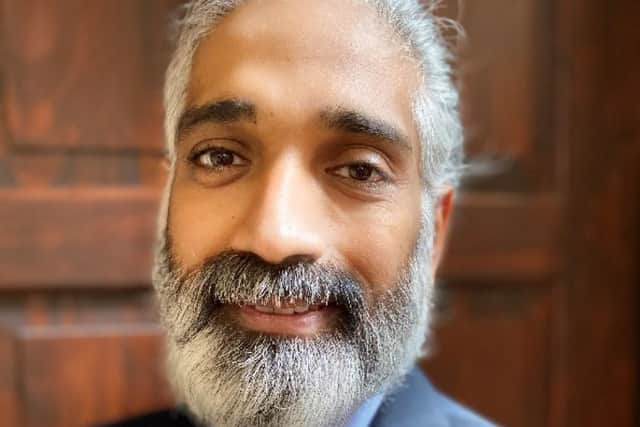Polio: Lancashire's Public Health boss speaks for the first time about his frontline role in India's huge eradication programme
and live on Freeview channel 276
The announcement that strains of the polio virus had been found in a London sewage sample took Lancashire's Director of Public Health back nearly 20 years to when he was on the coal face of India's eradication programme.
>>>Click here to read why the UK’s has declared a ‘National Incident’ over polio
Advertisement
Hide AdAdvertisement
Hide Ad"I've never sat down and thought about my experience until now", said Dr Sakthi Karunanithi, who came to the UK 17 years ago.


Dr Karunanithi was born and raised in Tamula, India, and studied in Delhi.
In 2003 and 2004 he completed his public health training with India's National Institute for Health and Family Welfare as well as with the World Health Organisation.
During that time he was involved firsthand in the country's massive effort to eradicate the virus which in the 1990s was paralysing 500 to 1,000 children a day.
Advertisement
Hide AdAdvertisement
Hide AdTo combat the problem, India's Government set out with Pulse polio vaccination campaigns which were conducted 10 times each year, tracking and vaccinating virtually every child - including in all transit points and transport vehicles.


As part of the programme, Dr Karunanithi was posted to districts around the country to not only administer oral vaccine drops, but to also work with the chief medical office, local leaders, carry out planning, sampling and surveillance.
He said: "Those were my formative years and polio and cholera were features of my training.
"Polio is a very nasty disease and can cause paralysis at a very young age.
Advertisement
Hide AdAdvertisement
Hide Ad"I'd see children becoming paralysed, but it wasn't 500 or 1,000 a day by then.
"And we'd make sure that anybody in close contact with someone displaying symptoms had ring immunisation so that nobody else would get it from contaminated water."
India's vast expanse meant the programme was a huge task, with scorching heat, remote populations, a language barrier in some areas, and lack of technology also complicating matters.
Dr Karunanithi also had to confront misinformation and mistrust about the vaccine.
"People had to go on foot to some villages", he added.
Advertisement
Hide AdAdvertisement
Hide Ad"In one place I remember we had a power outage because we were relying on generators. We were running out of ice packs and had to do a deal with the local icecream factory to keep the vaccines cool."
He added: "Thinking back, the scale of the operation was huge. But I'm glad I have the experience of dealing with it.
"My experience has made me more confident in dealing with anything in Lancashire.
"And I'm very proud to have played a small part in a huge national programme."
Advertisement
Hide AdAdvertisement
Hide Ad>>>These are Lancashire’s polio immunisation rates
Dr Karunanithi said no cases of polio have been detected in the UK for almost 40 years and there is no cause to be concerned.
But he is keen that parents do not become complacent, and make sure that their children are immunised.
He said: "It is exactly because we have high levels of immunisation that these nasty bugs like polio are not making a comeback.
"But if we get lax, then we might start to see some these things we've not seen in a generation."